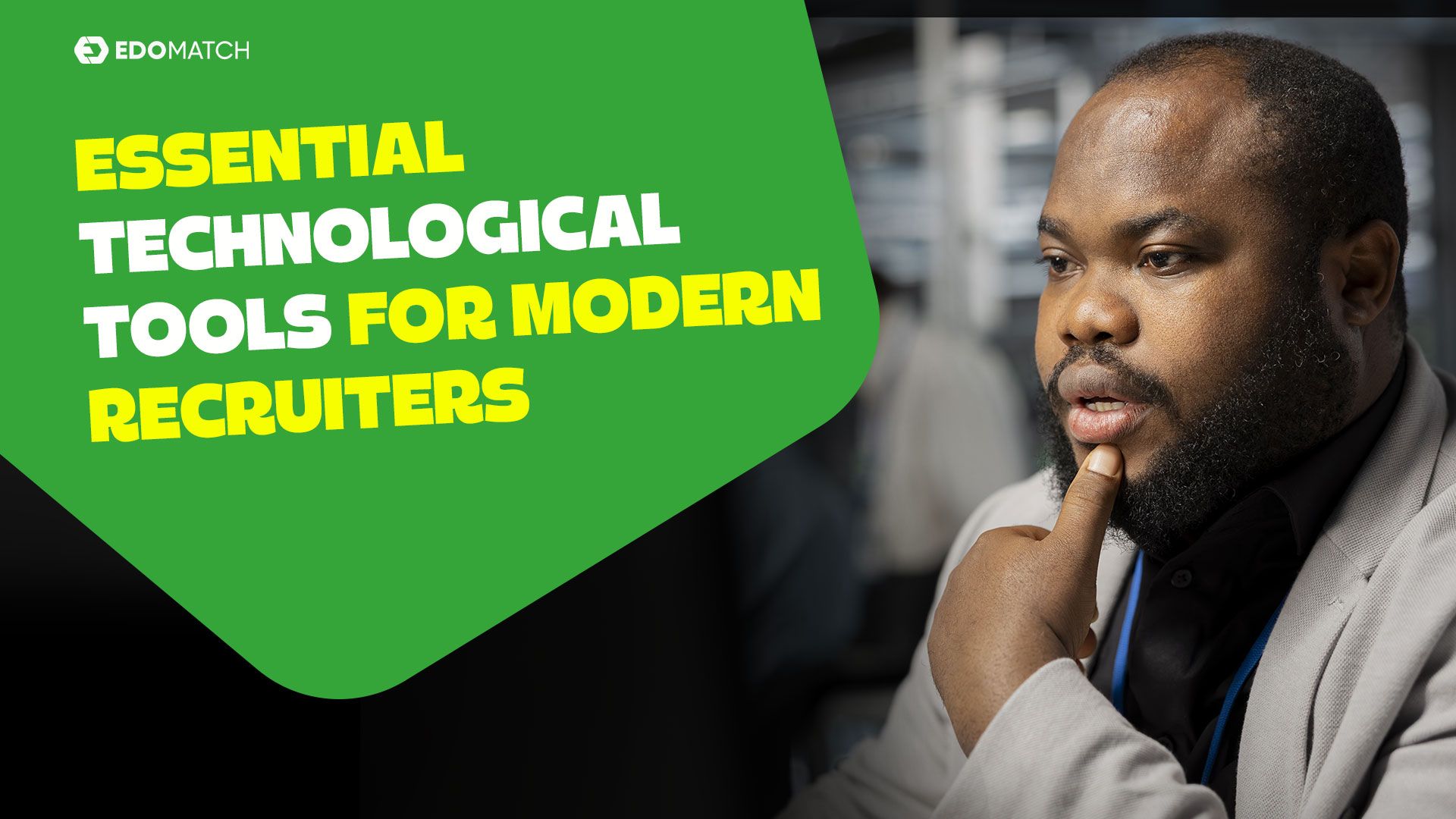Looking for your first job is a crucial step in your professional life. For many young graduates, it is a time filled with both hope and uncertainty. EdoMatch has been an expert in recruitment since 2024, supporting thousands of candidates and observing the mistakes that hinder their integration into the job market. Avoiding these pitfalls can make all the difference between an ignored application and a real opportunity. Here are the six major mistakes to avoid when looking for your first job.
The search for your first job always starts with a simple question: how do you want recruiters to perceive you? A poorly structured CV or an incomplete LinkedIn profile can reduce your chances before you even have the opportunity to showcase your skills in an interview.
Many recent graduates make the mistake of sending a generic CV, sometimes riddled with errors or without a clear layout. However, recruiters spend an average of less than 10 seconds reading a CV for the first time. If the essential information—skills, key experiences, qualifications—is not immediately apparent, your application is likely to be rejected outright.
A good CV for your first job search should be concise (one page is usually enough), visually clear, and above all, tailored to the job you are applying for. This means adapting your academic experience, internships, student projects, or volunteer work to the requirements of the position. The keywords in the job advertisement should be included in your CV, as many companies now use automated sorting software (ATS)
Similarly, neglecting your LinkedIn profile is a common mistake. In the digital age, it is no longer enough to send CVs: recruiters almost always check candidates' online presence. An incomplete profile, without a professional photo or clear description of your skills, gives a poor impression.
When starting the search for your first job, one of the most common mistakes is to apply for all available positions indiscriminately. Many recent graduates believe that sending out as many applications as possible will increase their chances. In reality, this approach dilutes your efforts and gives recruiters the impression that you are not serious.
A recruiter will quickly identify a generic CV that has not been tailored to their job offer. This conveys a lack of motivation and reduces your chances of being selected. Conversely, targeting opportunities that truly match your skills and career aspirations allows you to highlight your strengths and submit relevant applications.
To succeed in your first job search, it is essential to define a clear strategy:
- Identify the sectors and companies that really interest you.
- Tailor each CV and cover letter to the job offer.
- Highlight your experience, including academic experience, that directly corresponds to the tasks involved in the job.
By focusing your efforts on quality applications rather than quantity, you will gain credibility and efficiency.
The search for your first job does not rely solely on recruitment platforms and online applications. A large proportion of opportunities can be found in what is known as the ‘hidden market’ positions that are not officially advertised. Networking plays a decisive role in accessing these opportunities.
Many young graduates neglect this lever because they are shy or think they don't have any useful contacts. However, your network is not limited to established professionals: your teachers, classmates, former internship colleagues, and even student associations can be valuable resources.
Building and maintaining your network is an essential investment in successfully finding your first job. This involves:
- Attending trade shows, conferences, or professional events.
- Being active on LinkedIn and engaging in regular exchanges.
- Asking your contacts for recommendations or introductions.
A good network can open doors, inform you about positions before they are advertised, and help you get recommended directly to a recruiter.
Succeeding in an interview is a decisive step in finding your first job. Too many candidates think that their spontaneity will suffice and arrive unprepared, resulting in hesitant answers, a lack of confidence, or difficulty in highlighting their strengths.
An interview must be prepared in advance. This involves:
- Knowing the company and its values.
- Anticipating common questions (‘Tell me about yourself,’ ‘Why this position?’, ‘What are your weaknesses?’).
- Preparing concrete examples of projects or skills.
Preparation not only gives you confidence, but also shows the recruiter that you are truly motivated. When looking for your first job, every interview counts, and good preparation can make the difference between an average candidate and a convincing future employee.
Most recent graduates focus their CVs and interviews solely on their technical skills. However, when looking for their first job, recruiters are placing increasing importance on behavioural skills, also known as ‘soft skills’
Soft skills include qualities such as communication, teamwork, adaptability, stress management and creativity. These skills often make the difference between two candidates with similar technical profiles.
There are several ways to highlight your soft skills
- Illustrate your team spirit through group projects completed during your studies.
- Demonstrate your organisational skills through volunteer experience.
- Highlight your creativity by presenting personal or academic initiatives.
Highlighting your soft skills in your applications and interviews shows that you are ready to integrate and evolve in a professional environment, which is crucial when looking for your first job.
Many candidates believe that after the interview, everything is in the recruiter's hands. However, when looking for your first job, following up is a strategic move that is too often overlooked.
Following up allows you to reiterate your motivation, set yourself apart from other candidates, and maintain contact with the company. A simple thank-you message, sent within 24 to 48 hours after the interview, can make a strong impression. You can express your gratitude for the opportunity to meet, highlight a strong point in your profile, and reaffirm your interest in the position.
Not following up can give the impression of a lack of initiative or interest. Conversely, a professional and well-worded follow-up demonstrates your seriousness and perseverance. In a competitive market, this small detail can tip the decision in your favour.
The search for your first job is a crucial step, often marked by mistakes that can slow down the process. By avoiding these six pitfalls – a sloppy CV, a vague strategy, neglecting your network, lack of preparation, forgetting soft skills and lack of follow-up – you maximise your chances of convincing recruiters and landing the job that will launch your career.
Your first job is rarely perfect, but it is a stepping stone. The important thing is to learn how to position yourself as a serious, motivated and proactive professional. By applying these tips, you will transform your search for your first job into an effective and structured process that will open up the right opportunities for you.



